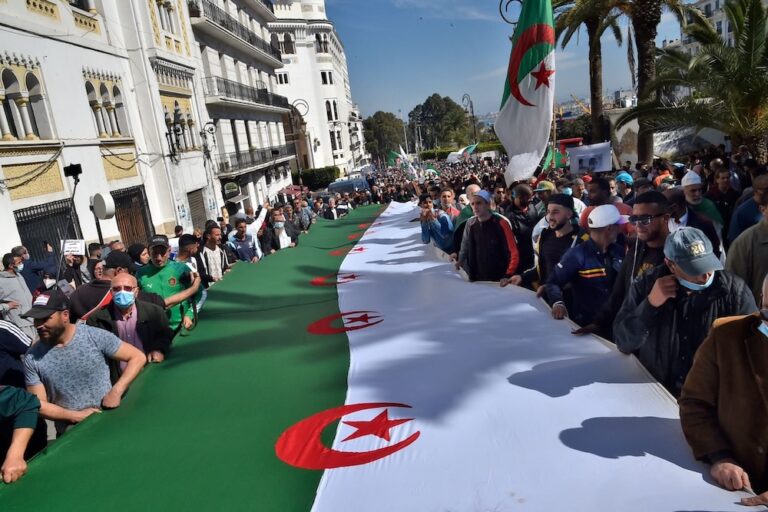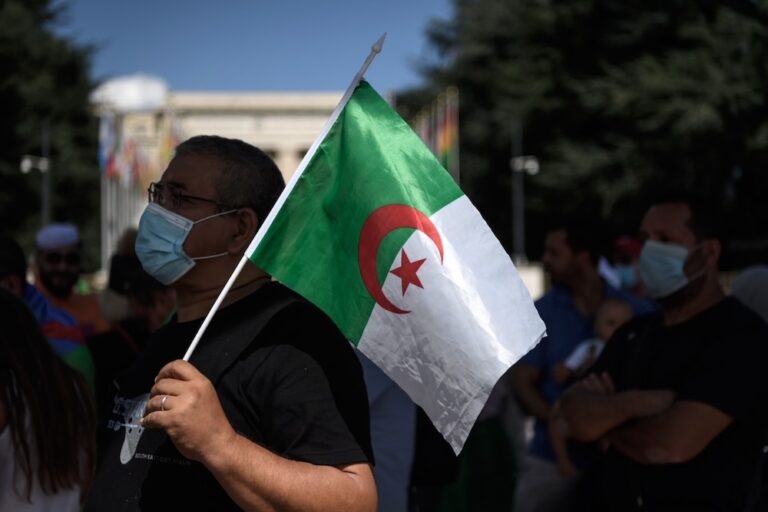Authorities have used arrests and other tactics to keep people from demonstrating in the capital in the period leading up to the 10 May 2012 elections.
(Human Rights Watch/IFEX) – Algiers, May 10, 2012 – Algerian authorities have used arrests and other tactics to keep people from demonstrating in the capital in the period leading up to the May 10, 2012 elections, Human Rights Watch said today. Security forces are detaining people who try to demonstrate peacefully in Algiers, including at least one candidate for election, and have prevented people from reaching the city if they suspect them of intending to demonstrate.
The government lifted a state of emergency in February 2011. Security forces justify their actions, however, on the basis of repressive laws on public gatherings, including a ban on gatherings in Algiers, the capital, imposed after a demonstration turned violent in 2001. These laws are contrary to Algeria’s binding human rights obligations under international law. The government should end its unjustified restrictions on freedom of assembly in Algiers, Human Rights Watch said.
“If Algerian authorities are serious about respect for human rights and democratic reform, they should liberalize the laws to show they are not afraid to let Algerians exercise their right of assembly,” said Sarah Leah Whitson, Middle East and North Africa director at Human Rights Watch.
Security forces in the capital have taken pre-emptive measures and used force against groups who have tried to defy the ban on demonstrations in the capital, especially when the purpose of the demonstration was considered politically sensitive. Typically, security forces try to block access to the site of the planned demonstration. They then move in to disperse anyone who has managed to reach the site, arresting some and transporting them to police stations, where they hold them for several hours before releasing them.
In a major speech on April 14, 2011, President Abdelaziz Bouteflika announced reforms that would include amendments to the constitution and to laws on elections, political parties, and the media.
Parliament has since approved new laws on all of these issues. Nevertheless, the right to freedom of assembly remains severely compromised. Authorities have neither lifted the indefinite 2001 ban nor revised the 1991 law governing assembly, which requires prior authorization for public demonstrations.
An indefinite ban on all demonstrations is not a proportionate response to a march that degenerated into violence 11 years ago but rather the negation of the people’s right of assembly, Human Rights Watch said.
Algeria is a party to the International Covenant on Civil and Political Rights, which guarantees the right to peaceful assembly, as well as freedom of association and speech. The United Nations Human Rights Committee, which monitors compliance with the covenant, has advised Algeria that its laws and practices on assembly do not conform with the basic human rights standards required as a party to the treaty.


